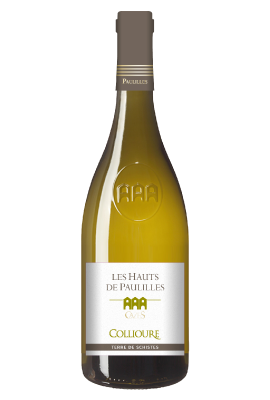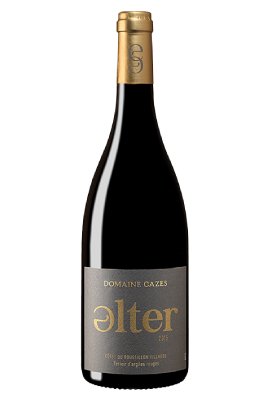Why you should try Biodynamic once in your life?
What exactly is Biodynamic Wine? Biodynamic wine is great and somewhat odd.

What does Biodynamic mean?
The concept of Biodynamics started in the 1920’s with an Austrian philosopher named Rudolph Steiner. It is a holistic, homeopathic manner of farming that, of course, also includes viticulture. It is the oldest, anti-chemical agricultural movement that predates the creation of organic farming by about twenty years.
Instead of “treating” the vines and the grapes with harsh, toxic chemicals, the winemakers allow nature to do all of the work. For example, sheep may be left to roam throughout the vineyard plots. This not only helps to contain the weeds it also helps to fertilize the vines. Ducks may also be seen wandering the grounds which helps to keep the bugs to a minimum.
Only naturals yeasts are permitted to ferment the wine. Acidity adjustments are not permitted in the wine-making process.
By allowing the land to work as it does naturally, and allowing the animals to fertilize it and rid it of the bugs, it leaves the farmland not only as good as it was before it was being used for grape-growing, it leaves it even richer.
So, it is possible to have a wine made “using biodynamic grapes”, but it would only be Biodynamic if the Grapes were both farmed biodynamically and the Vintner followed the stricter Biodynamic rules such as Sulphite use (Certified biodynamic wines contain up to 100 PPM sulfites), natural yeast and the control of acidity.

How are Biodynamic wines different from Organic wines?
Biodynamic viticulture is the practice of balancing this resonance between vine, man, earth and stars.
The concept behind biodynamic is that everything in the universe is interconnected and gives off a resonance or ‘vibe’. The interconnectivity of everything even includes celestial bodies like the moon, planets and stars. Biodynamic viticulture is the practice of balancing this resonance between vine, man, earth and stars.
The Vineyard as part of an Ecosystem is central to the Biodynamic culture. The grape crop growing cycle follows a timetable that is determined by astrological influences and the lunar cycle.
All the various tasks, from planting, pruning, to harvesting, are regulated by a special biodynamic calendar. The calendar was originally devised by the ‘high priestess’ of Biodynamics, Maria Thun, who divided days into four categories: Root, Fruit, Flower and Leaf Days.
Each biodynamic calendar day coincides with one of the four classical elements of Earth, Fire, Air and Water that have been used since before Plato’s era:
- Fruit Days: Best days for harvesting grapes
- Root Days: Ideal days for pruning
- Flower Days: Leave the vineyard alone on these days
- Leaf Days: Ideal days for watering plants
You would never, for example, want to harvest on a Leaf Day because Leaf Days correlate with the Element water and you’d end up picking rotten, waterlogged grapes!
Biodynamic viticulture requires special compost preparations that are stuffed into cow horns and buried in the soil
“Cow horns are stuffed with special compost preparations. After being buried for a time, the contents are used to make a ‘tea’ for fertilizing the vineyard.”
Biodynamic viticulture requires special compost preparations that are stuffed into cow horns and buried in the soil. Later, the cow horns are dug up and reused and the ’stuffing’ is distributed throughout the vineyard.
Many believe the practice of biodynamic composting pseudoscience. Regardless, the historical precedence perhaps explains why cow horns are used: the animal horn is a symbol of abundance. For example, the Vikings believed that water drunk from a horn contained life enhancing properties. Today, this belief proliferates in Chinese traditional medicine (e.g. Rhino horn) and even the ‘cornucopia’ of American Thanksgiving.
There are nine compost preparations used in Biodynamic farming which include everything from manure and cow horns to yarrow blossoms (mentioned in Homer’s Illiad for treating wounds), chamomile (a natural antiseptic) and stinging nettles (a natural cleanser). Of course, there is no serious evidence on whether or not cow horns are a truly necessary component in what is ultimately a dedicated organic gardening process.

How to Find Biodynamic Wines
In order for a winery or a vineyard to refer to itself as Biodynamic, it must have achieved certifications from organizations like Demeter Association or Biodyvin. For example, Demeter Association governs and certifies as of 2017, 603 wineries worldwide, covering 19 countries and 13,158 hectares of Vineyards.
Certification extend to both the viticulture (growing the grapes) and the viniculture (making the wine).

Why you should try Biodynamic once in your life?
You should try because of all the reasons above - Drinking Biodynamic means you're helping the vineyard to become better. It also means you're drinking something healthy. The best Biodynamic wines taste pure, clean, refreshing – and simply amazing. Enjoy a glass of one of the best Biodynamic wines today; you’ll immediately smell, feel, taste, and savor the difference.
Call 1900 636 749 or visit WeWine stores nationwide to have the best experience of our best Biodynamic wines.
Sommelier Khanh Vi & Bao Chau
Source:
- https://www.templarwines.co.uk/organic-to-vegan/
- https://winefolly.com/deep-dive/biodynamic-wine-guide/
- https://www.demeter.de/verbraucher/landwirtschaft/weinbau/weltweit/faq
Recommendation from WeWine 
Related posts
-
Less powerful hangovers, fewer chemicals, and kinder to the environment – no wonder drinking organic wine is becoming a trend.
-
On wine labels, we normally see "contain/no sulphites". What is sulphites? And are sulphites wines good or bad to us?
-
The entire vineyard is cultivated using sustainable viticulture practices; Use solar energy, recycle wine bottles.
-
It’s completely logical to think that all wine must surely be vegan. It is, after all, a drink that’s made from pressing and fermenting grapes! While the wine itself is completely fruit-based, it’s the production techniques used in the winery that can turn a vegan-friendly blend into one that vegans would want to avoid.
-
Organic wine has been on the market since the 80s, but at that time the quality was not appreciated. Later, the wineries adjusted the way of making wine and organic wine became one of the trendy beverages in 2009 - According to a survey by the American Restaurant Association.
Copyright © 2020 by WeWine
You must be over 18 to consume alcohol | Sitemap












![[Organic to Vegan] Is Sulphites in wines bad?](https://wewine.vn/datafiles/thumb_1615871305_Sulphites-trong-ruou-co-xau-khong-WeWine.jpg)





